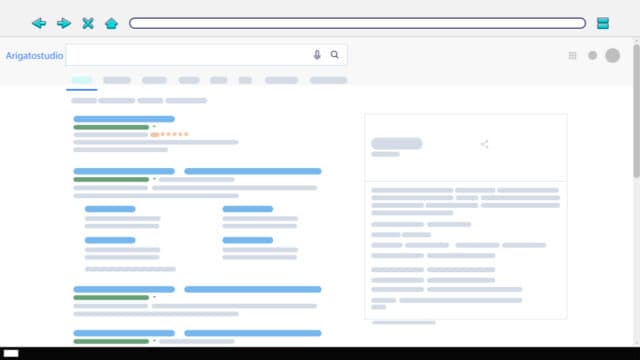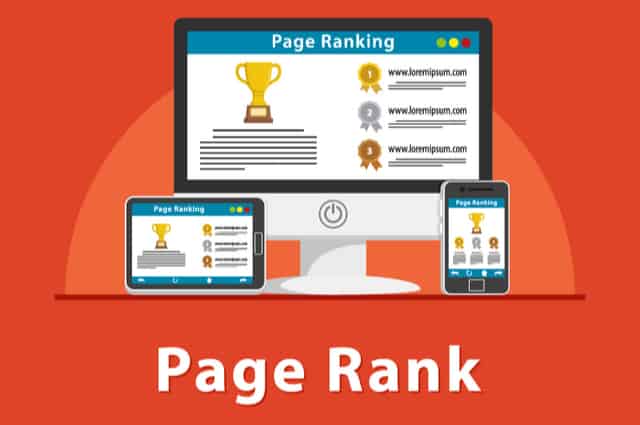Keyword Research Tips: How to Find the Perfect Keywords for a Website?
Keywords are the words people used to look online for information. They include the name of your business, product, service, or website. If you want to rank higher in Google searches, concentrate on keywords that are related to your website.
For SEO, keyword research is not at all something that you do once and then forget about. It’s a continuous activity that can have a significant impact on how you get potential leads and consumers online.
By incorporating keyword research recommendations into your digital marketing strategy, integration, and cost, it will better equip you to make selections about strategic planning, execution, and cost.
Local Keyword Research Tips – How to Find and Choose Keywords for Your Website

The first step to finding keywords is to understand what they mean. That’s where keyword research is useful. Among the most crucial aspects of website development is keyword research. It’s also one of the most time-consuming, but it’s worthwhile.
The more keywords your website has, the more likely you are to rank for those on Google.
What is Keyword Research?
The practice of identifying common search queries that are related to customers’ interests is known as keyword research. Businesses use this method to figure out which search phrases their target audience uses the most.
This would help them score better on search engine results pages (SERPs) and attract more customers. The most crucial thing to understand about keyword research is that it is a multifaceted process. It’s a process that involves looking at many factors to determine which keywords will drive traffic to your site.
Why is Keyword Research Important for SEO?
Keyword research is critical for SEO since it allows you to reach a broader audience and get more qualified leads. The primary goal of SEO is to increase visibility.
You may also improve your SERP rankings by incorporating high-traffic keywords throughout your website. Additionally, folks looking for your services will find you quicker.
According to studies, the bulk of website clicks go to the first five organic listings, therefore you should strive for the top. As your company becomes more visible, your chances of turning potential lead into loyal clients improve.
In layman’s words, keyword research can benefit your organization in the following ways:
- More customers will see you.
- Your website will receive more engagement.
- You will produce more sales and money.
Now, since you understand why keyword research is crucial, let’s go through some techniques for conducting meaningful and comprehensive keyword research.
How Do You Find Keywords for Your SEO Strategy?

The first step in keyword research is determining which keywords to target. This will depend on your business goals, but generally speaking, you want to focus on long-tail keywords (i.e., those with lower search volumes) because they tend to produce higher-quality traffic.
1. Prior to conducting research, determine the scope of your project
It’s easy to get off track and begin gazing at keywords without understanding what you’re searching for once you’ve gotten into keyword research. You might waste hours attempting to locate the perfect keyword for a particular page, or you could simply capture every keyword that appears connected to your website.
Evaluate your research goal: Are you creating a keyword profile to track the website performance, are you exploring for content gaps in your business to exploit, or are you just looking for a few keywords to begin a fresh page?
You may get a better feel for what keywords you truly need by selecting the scope of your keyword research.
2. Don’t Limit Yourself to Monthly Searches – Intent Is Everything

The first measure you examine when selecting a keyword to promote on your website is how many buyers are looking for it.
Although, that figure is meaningless if your website has no possibility of appearing on Google’s first or second pages, or if your webpage fails to provide users with the information, they need when they search.
That’s where search intent enters: figuring out what visitors are looking for when they type a keyword into a search engine.
Although search intent is a subject that deserves its own guidelines, as a rule of thumb, you should examine what is ranking for a phrase or keyword on Google before deciding to aim for the major keyword you can discover.
There, you’ll see what Google deems to be the ideal serving users for that keyword right now, as well as what your page will be contending with.
If the material you’re generating doesn’t respond to the search in the same or better method as other sites, you must consider trying an alternative term.
3. Examine Your Competitors: How will Google Keyword Planner Help?

If you’re not sure what keywords to search for, the first thing to begin with is by looking at what your competitors are ranking for.
Mongools and SEMrush are two tools that will help you rapidly determine the keywords your rival companies are ranking for.
However, Google Keyword Planner has a much easier method. On the Google Keyword Planner, click “Start with a Website” and type in the URL of your rival’s website.
You’ll then be presented with a plethora of keyword recommendations based on the page’s current rating, as well as all the other information that the keyword planner usually gives.
4. Don’t Be Afraid to Use Search Engines

It may seem self-evident that if you want to rank higher on Google, you must look at Google. You’ve probably been looking for keywords to check if your website shows up and what other websites keep coming up.
However, if you know where to start, you may find a variety of additional information sources about terms that people are seeking that aren’t limited to Google Search Engine Results Pages (SERPs).
Take a look at the “People Also Ask” area, where Google specifies which search phrases and long-tail terms visitors used to find out more about the topic.
5. Once you’ve decided on a keyword, look for variations
So, you’ve discovered the term or query you’d like to use for your fresh webpage. Congratulations! But there’s still a way to get even more mileage out of your article than merely using that phrase.
Following that, look for variations of the terms incorporated on the same page.
Choosing synonyms and thematically related keywords can assist you in increasing the number of keywords you have and enhancing their ranks.
If you’ve already got the top keyword with the most searches, there can be a super-relevant long-tail version that’s great for your website.
You can focus on more keywords and be more productive by looking into various possibilities.
6) Focus on Questions and Queries

Inquiries and concerns remain a significant type of variation you might target. If you’re a coffee roaster who distributes ground coffee to customers, you might assume that your website, which focuses on keywords such as “finest ground coffee” and “purchase ground coffee online,” is spot on.
Many individuals will query “where will I get ground coffee” and “which is the best ground coffee” if they are unsure about what to obtain and how to acquire it.
Addressing these questions and concerns, keywords, like synonyms and related terms, can help you improve a page’s ranking performance on Google for a wide range of terms.
Ensure that your material adequately addresses these terms to appear in the “People Also Ask” section.
Know the three most important things to consider when selecting keywords
The first step is understanding the three main factors for keyword selection: competition, cost per click (CPC), and conversion rate. This will assist you in determining which terms are worthwhile.
Competition
When it comes to ranking on Google, there are two types of search results that matter most: organic and paid.
Organic results come from websites that have been optimized for SEO by building backlinks and content that can rank well in search engines. Paid results come from companies that pay to get their ads shown on top of SERPs.
So how does competition factor into keyword research? The higher the number of competitors, the less likely it is that someone else has already built a website with the same exact page title or URL.
In other words, these are the best opportunities to build links and rank high in search engine results.
Cost Per Click (CPC)

The cost of advertising on search engines is measured in terms of cost per click (CPC). The CPC represents the average amount that advertisers are willing to pay for each time their ad is clicked by someone who has searched for their products online. This strategy is another way to evaluate the success of your keywords.
Conversion Rate
This is the last metric to consider when selecting keywords. The conversion rate of your adverts determines how well they convert visitors into buyers. The higher your click-through rate (CTR), the more effective your advertising will be.
Use the data you collect to choose keywords
Once you know what keywords you want to target, it’s time to use them to create landing pages. A landing page (LP) is a web page that is meant to encourage traffic into leads.
Assume you’re in the kitchen equipment sales industry. Your landing page could feature a picture of a refrigerator, along with product specs and reviews.
It’s time to put your new keywords to the test now that you’ve pulled all together. Use Google Analytics to see which ones bring in the most traffic.
Start targeting those keywords on social media networks like Facebook, Pinterest, Instagram, Twitter, LinkedIn, and others.
Relevance

The goal of keyword research is to find out which keywords people are using to search for information related to your product or service. This can help you figure out who your intended audience is and where they can be found online. It also gives you ideas for content and marketing strategies.
Authority
The authority score measures the quality and quantity of backlinks from trusted websites. It’s calculated by looking at the number of links pointing to your website and the reputation of those sites. A higher authority score means more credibility.
Volume

Keyword research helps you find out which keywords will drive traffic to your website. It’s important to know this information before you start writing content because if you don’t rank high enough on Google for those keywords, then people won’t see your site at all.
What is local keyword research?
The technique of discovering keywords that individuals use while shopping for local items or services is known as local keyword research. Optimizing these keywords brings more clients your way by driving targeted local traffic to the website.
Local SEO keyword research refers to SEO efforts that target specific geographic locations. This includes optimizing websites for local keywords, which are words people type into Google or Bing to find businesses online.
For example, if you run a restaurant in New York City, you might want to optimize your website for “New York restaurants” so people searching for those terms will see your business first.
Why is local keyword research important?

Local keywords are those which relate directly to your business location. These include local keywords like “restaurant near me”, “bakery near me”, etc.
These types of search term will return search results from businesses within your area that are offering similar services. Hence, it is very important to find keywords related to local SEO and local business.
Local keyword research is essential if you want to know what customers type into search engines like Google when looking for your organisation and its products. That may sound obvious, yet it is the essence of the problem.
The majority of individuals simply make assumptions about these terms, presuming they know how people search for their business. As a result, they usually target the incorrect keywords or overlook phrases that could improve their final outcome.
How to Do Local SEO Keyword Research?
The first step to local SEO keyword research is to find out which potential keywords people are doing a local search for. Identify the search term.
Create a keyword list. Include long-tail keywords, negative keywords, short tail keywords, implicit keywords, and explicit keywords, along with the search volumes.
There are several approaches, but by far the most effective is to combine Google Trends with a keyword research tool.
Google trends will show you trending search volumes across different regions. It’s worth noting that not all search results are created equal. Some search phrases may be more relevant than others.
For example, if you’re looking to promote a restaurant, “best restaurants near me” might not be as effective as “restaurants in Philadelphia.”
Explicit Search Vs Implicit Search

The keyword research process involves looking at the keywords people are using to find information online.
This helps us understand which terms they’re searching for and which pages they’re clicking on most often. It also gives us insight into what content we should focus on creating, so our site ranks higher for those search queries.
Explicit and implicit searches are the 2 kinds of local search queries available. An explicit search, such as “Restaurants in New York,” plainly states that you are searching for something in a particular location. Because Google knows you’re looking for restaurants in New York City, that’s all they’ll show you.
Although an implicit search does not specify a place, Google can infer that you are probably looking for anything nearby (because Google knows your IP address), such as “Restaurants.” Even if you don’t include “New York” and start searching, Google will return results for local eateries in New York.
Keyword Research Tools
There are numerous paid keyword research tools and free tools available to assist you in gathering keyword ideas, search volume, and other crucial data.
Marketers and organizations can use keyword tools that are affordable, straightforward to use and provide vital data to better their marketing strategy.
The most important thing to remember when doing keyword research is that keywords are not just words — they’re phrases. So if you want to rank well for “keyword phrase X,” you need to include both the word itself (X) and any additional words that might appear around it.
Use keyword research tools to your advantage

The first step in any ad campaign is to find out which keywords will drive traffic to your site. And that is where Google AdWords are useful. The following is an example of how a keyword research tool can assist you in performing a competitive analysis:
1) Suggest keyword suggestions depending on the niche of your business or the goal of your website.
2) Arrange keywords into Ad Groups to run advertisements and receive automatic and immediate feedback.
3) Assist in the identification of keywords that engage and generate traffic.
4) You can enhance the SEO of your article by recognizing the suggested terms.
5) A keyword research tool can generate extremely relevant keywords and support content by executing inquiries and article ideas.
Conclusion
With practice, everyone develops their own techniques, resources, and tactics for conducting keyword research. Still, one thing we all learn from keyword research is that it is a continuous cycle.
The keywords you can and must target will change with time, just as the top prominent keywords vary from month to month.
This implies that the secret to keyword research is to approach it as analysis, as the name implies.
In conclusion, keyword research isn’t simply something you do once you’re setting up a new blog; it’s a continuous method of obtaining insights and information to drive your strategy.
Subscribe to our Newsletter
Sign up to receive email updates on new product announcements, exclusive sales and marketing content, special offers on email validation plans, and more.
We send curated content as per your preference and do not indulge in spam!
What would you like to know about
We’re committed to your privacy. TuxMailer uses the information you provide to us to contact you about our relevant content, products, and services. You may unsubscribe from these communications at any time. For more information, check out our privacy policy.



